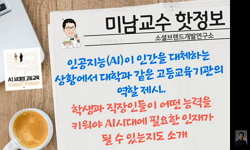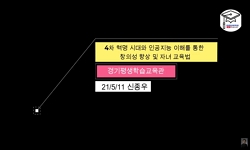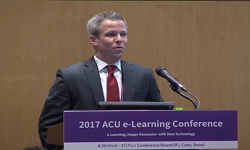The purpose of this article is to organize the outlines that Professor Cheon Gwang-seok(hereafter ‘Cheon’) presented regarding the constitutional discipline in the field of education and to track and present how disciples are continuing the discus...
http://chineseinput.net/에서 pinyin(병음)방식으로 중국어를 변환할 수 있습니다.
변환된 중국어를 복사하여 사용하시면 됩니다.
- 中文 을 입력하시려면 zhongwen을 입력하시고 space를누르시면됩니다.
- 北京 을 입력하시려면 beijing을 입력하시고 space를 누르시면 됩니다.

전광석 교육헌법론의 전개와 계승 = A Development and Succession of Prof. Cheon Kwang-Seok’s Constitutional Law of Education Theory
한글로보기https://www.riss.kr/link?id=A109140808
- 저자
- 발행기관
- 학술지명
- 권호사항
-
발행연도
2024
-
작성언어
-
- 주제어
-
KDC
300
-
등재정보
KCI등재
-
자료형태
학술저널
-
수록면
79-99(21쪽)
- 제공처
- 소장기관
-
0
상세조회 -
0
다운로드
부가정보
다국어 초록 (Multilingual Abstract)
The purpose of this article is to organize the outlines that Professor Cheon Gwang-seok(hereafter ‘Cheon’) presented regarding the constitutional discipline in the field of education and to track and present how disciples are continuing the discussion on constitutional law of education. To achieve this purpose, we first looked for Cheon's writings on constitutional law of education and summarized the background and main contents of the discussion(Ⅱ). I also explored what characteristics Cheon's constitutional law of education theory has and how those characteristics are being inherited and developed by disciples(Ⅲ). Finally, the article was concluded by summarizing the above discussion(IV).
As a result of the discussion, Cheon published a total of 7 papers on constitutional law of education. If we classify this according to the type of text, there are 5 articles, 1 conference discussion paper, and 1 textbook. And if I classify it by level of education, there is 1 paper about elementary and secondary education, 4 papers about higher education, and 2 papers about complex issues.
Cheon's constitutional law of education theory argued for discriminatory discipline based on the differences between elementary&secondary, and higher education, and presented a critical view of the 「Framework Act on Education Act」 and the 「Private School Act」, which integrate and regulate eelementary&secondary, and higher education, determine who the parties are in the field of education, develop a theory of legal relationships between them, project a deep understanding of constitutional theory into the field of education based on an understanding of the autonomy of education, and provide an opportunity to view education from the perspective of welfare state theory. The fact that it was prepared can be said to be a major feature. These characteristics of Cheon's constitutional law of education theory were passed down to disciples, including I, and were sometimes argued as such and sometimes applied to solve other real-world legal problems. And some of them were expanded.
동일학술지(권/호) 다른 논문
-
- 연세대학교 법학연구원
- 엄주희 ( Juhee Eom )
- 2024
- KCI등재
-
- 연세대학교 법학연구원
- 박찬권 ( Park Chan-kwon )
- 2024
- KCI등재
-
전광석 교수님의 사회보장법학 ― 전광석 사회보장법학 眺望 ―
- 연세대학교 법학연구원
- 박지용 ( Jiyong Park )
- 2024
- KCI등재
-
저출생·초고령사회와 노인장기요양보험법의 헌법적 쟁점에 관한 시론 ― 헌법재판소 결정을 중심으로 ―
- 연세대학교 법학연구원
- 김정민 ( Kim Jungmin )
- 2024
- KCI등재
분석정보
연관 공개강의(KOCW)
-

AI시대의 고등교육, 어떻게 해야 할까
신한대학교 신종우 -

종합토론 : 고등교육 혁신지원을 위한 대학원격교육지원센터(UDEC) 발전 방안
한국교육학술정보원 이태억, 김정숙, 김현철, 박주병, 서순식, 장상현 -

고등교육에서의 인공지능을 활용한 교육법 세미나
한국교육학술정보원 박남기, 강신천, 김영훈, 김주호, 안병규, 신종우 -

4차 산업혁명과 인공지능 시대, 창의성 향상 및 자녀 교육법
신한대학교 신종우 -

2017 ACU 이러닝 국제 콘퍼런스
한국교육학술정보원 션 코너(Sean Connor), 아베리노 메지아(Avelino A. Mejia Jr.), 멜린다 델라페나 반달라리아(Melinda dela Pena Bandalaria), 가또 하리 쁘리오잔또




 KISS
KISS


